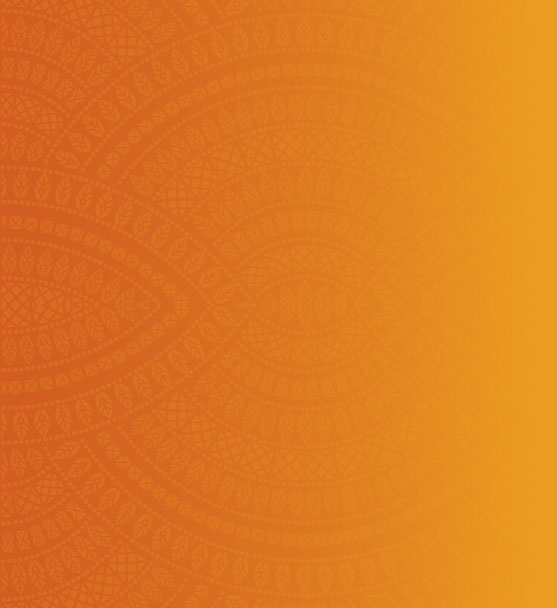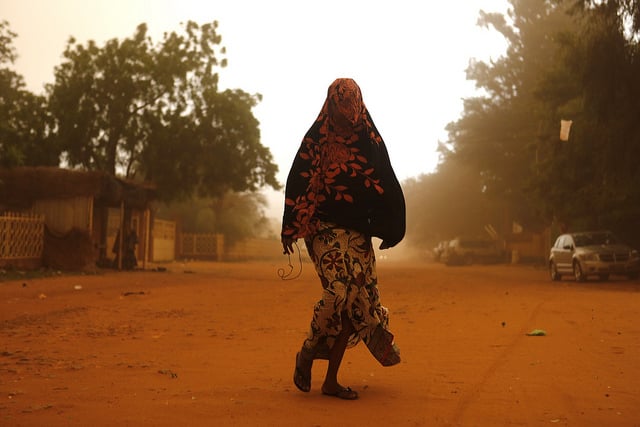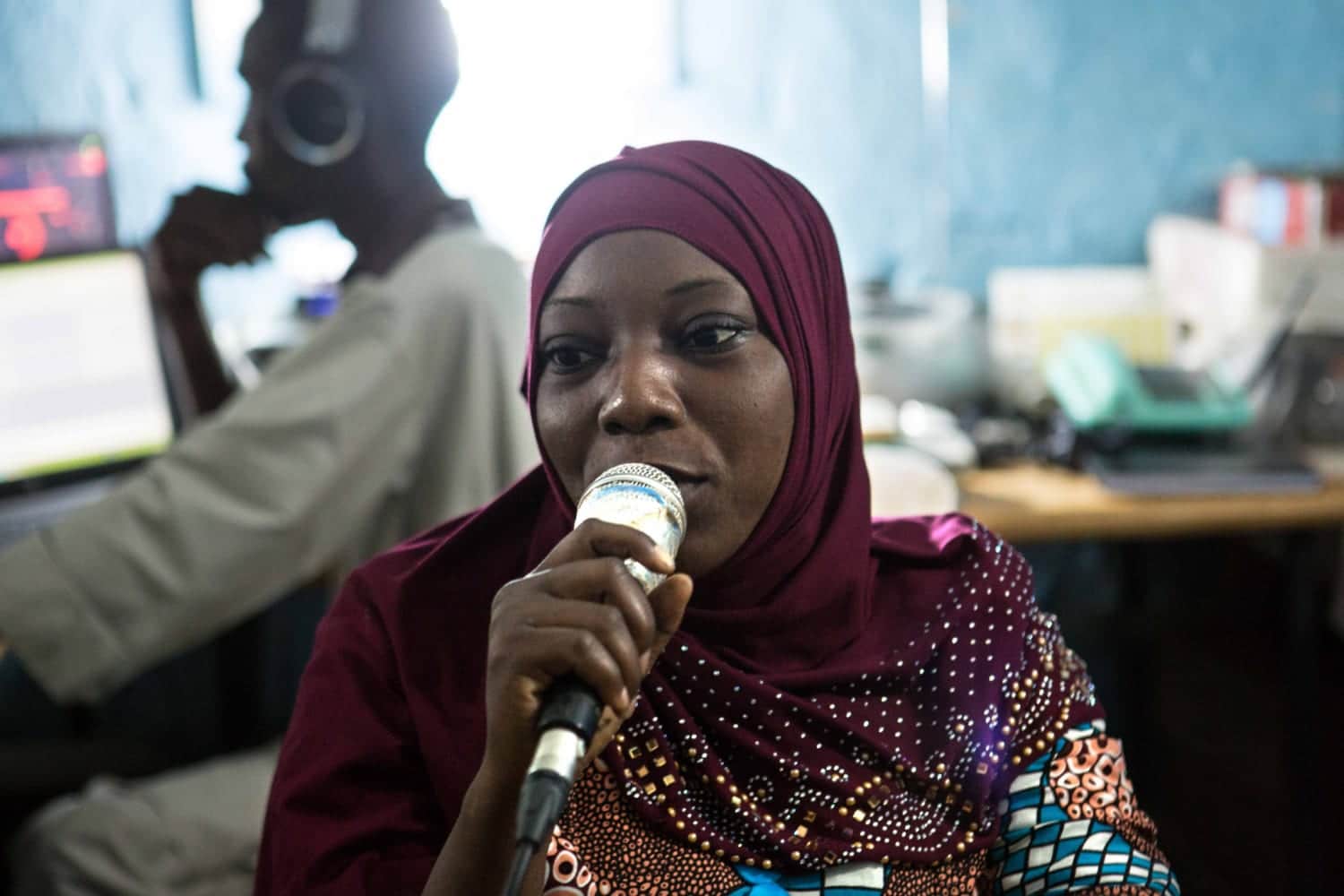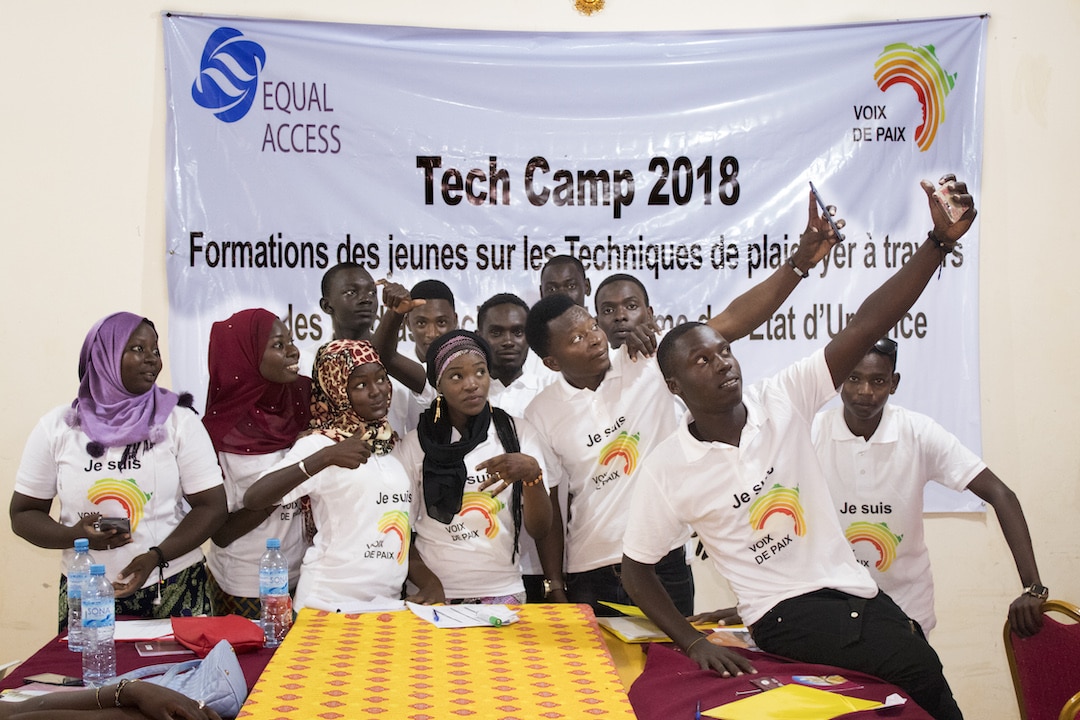

Transforming Extremism in the Sahel
Is it possible for a community to peacefully challenge Boko Haram's decade-long destabilization? Voices for Peace’s (V4P) strategy to address the root causes of vulnerabilities to violent extremism through issue-based programming is working.
A Project of —
Responsive Media Development for Democracy in Niger, Voices for Peace (V4P)

V4P held a stakeholder meeting in Diffa, the southeastern region of Niger that has been destabilized by Boko Haram’s violent 10-year insurgency in neighboring Nigeria. The gathering, designed as an opportunity for V4P staff to meet with civil society leaders and local public officials to discuss the State of Emergency, became a turning point for our work in Niger.
In front of a large, diverse, and enthusiastic crowd, V4P’s Niger Country Director, Harouna Abdoulaye, declared in both jubilation and astonishment:

“This level of energy and enthusiasm is unprecedented in Diffa. This community is galvanized to make its voice heard, and V4P has struck a chord.”
The Governor of Diffa made a similar observation:
“Getting civil society, government representatives, local military forces, and youth around the table to discuss sensitive issues related to security and governance is the right strategy to weaken violent extremist organizations (VEOs).”
This uptick of enthusiasm and civic engagement is a direct result of V4P’s issue-based programming. The sheer number of participants at the event is a testament to how eager people are to find solutions to the complex social issues that are destabilizing their communities.
The Diffa region was the entry point of Boko Haram in Niger in 2015 and remains a prime target for the group. At-risk communities in Niger face the constant threat of Boko Haram and are still dealing with negative consequences of restrictive government-imposed security measures and a lack of basic public services that destroy their livelihoods. Stuck between a rock and hard place, marginalized local populations are trapped between the heavy-handed operations of security forces and those of Boko Haram and its affiliates.
Lacking opportunities to engage civically or create meaningful change in their communities, disaffected youth across the Sahel and the Lake Chad Basin are vulnerable to recruitment by Boko Haram for protection, subsistence, and a desire for belonging.
V4P is a USAID-funded project implemented by Equal Access International (EAI)with the aim of reducing vulnerability to violent extremism across five countries in the West Africa (Burkina Faso, Cameroon, Chad, Mali, and Niger).
With a wide network of 91 community radio stations, 500 community listening club members, 200 youth leaders trained on social media and online advocacy, and a diverse team of local staff embedded in their communities, V4P has demonstrated the capacity to penetrate, build trust, and operate in the most vulnerable communities in the region.
What really makes a difference in our approach to transforming violent extremism is a new paradigm that allows EAI to identify, study, and act upon the root causes of youth vulnerability. V4P works to build resilience to violent extremism by empowering marginalized communities to develop their voices and visions and take action in their communities.
From the poor village of Logone Chari (Extreme North of Cameroon) to the dusty town of Dori (the Sahel region of Burkina Faso) to Bol (on Lake Chad), violent extremists weaponize weak state structures, repressive State behavior, rampant unemployment, and lack of public services to lure at-risk individuals, especially young people, into their deadly endeavor.
To counter this regional trend, V4P tailors programs and country-specific strategies to foster social cohesion and strengthen dialogue between national governments and their citizens. Galvanizing inclusivity allows citizens to channel their grievances peacefully, enhance the legitimacy of elected representatives, and create powerful shared alternative narratives and pathways for building peace and stability in the region.
Shaping a different narrative to fight violent extremism across five countries, V4P organizes interactive talk shows on local radio stations in over 21 local languages to discuss pressing social issues that are undermining peace and security. During a recent V4P radio program in the Sahel region of Burkina Faso, guests were sharing critical information on the government’s Sahel Emergency Plan. After the initial roundtable discussion, a woman called in and said:

“After many generations, our government is finally here to listen to us.”
While a seemingly simple statement, V4P is helping to advance peace by reducing the perception of marginalization and exclusion, thereby eroding the ability of armed groups to recruit frustrated and disaffected people.
When V4P supports youth associations in N’Djamena (Chad) to get involved in drafting municipal investment projects, the propaganda of VEOs that tap into youth exclusion becomes less effective. When V4P facilitates dialogue and consensus between herders and farmers across Mali and Niger, it becomes harder for VEOs to divide and conquer by manipulating deep-seated community divisions.
When former tech camp participants in Burkina Faso publish a video on Facebook that showcases inter-ethnic solidarity and commitments to peace — and that video goes viral, social media influencers who promote violence are drowned out. Having realized the impact of V4P’s project in his community, Adam Tchary, a local journalist in Radio Kadaye (Chad) said eloquently: “I never thought that a microphone could be such an effective weapon against Boko Haram.”
Follow V4P on Twitter: @PeaceVoices4
Read more on EAI’s Medium page